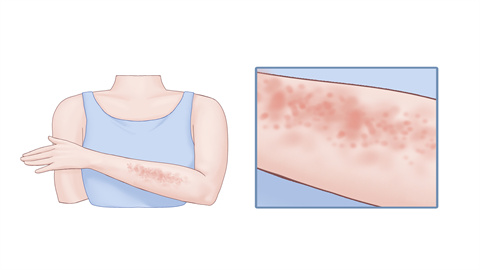What are the early symptoms of AIDS?
AIDS generally refers to acquired immunodeficiency syndrome. In the early stages, common manifestations of acquired immunodeficiency syndrome mainly include fever, swollen lymph nodes, rash, sore throat, fatigue, and weakness. If discomfort symptoms occur, it is recommended to seek timely medical examination at a正规 hospital. Detailed analysis is as follows:
1. Fever
After the virus enters the body, it stimulates the immune system, triggering an immune response, releasing inflammatory factors that affect the body's temperature-regulating center, leading to fever. The temperature is usually low to moderate, generally between 37.5-38.5℃, with varying duration; some individuals may experience night sweats.

2. Swollen Lymph Nodes
The virus replicates within the lymph nodes, causing an inflammatory response and resulting in lymph node swelling. Commonly occurs in the neck, armpits, groin, and other areas. The swollen lymph nodes are usually soft in texture and may be slightly painful upon pressing. They generally do not fuse together and can resolve spontaneously after several weeks.
3. Rash
The virus and inflammatory factors act on the skin and mucous membranes, causing abnormal skin reactions and resulting in rashes. These rashes are often red maculopapular eruptions, distributed on the trunk and limbs. Some individuals may experience mild itching, typically without significant pain. Rashes usually fade gradually within 1-2 weeks without leaving scars.
4. Sore Throat
The virus invades the mucous membranes of the throat, causing inflammation and resulting in throat pain. Pain worsens during swallowing and may be accompanied by redness and swelling of the throat. Some individuals may experience dryness or a foreign body sensation in the throat. Severe cases can affect normal eating and speaking, with symptoms lasting from several days to about a week.
5. Fatigue
Viral replication in the body consumes large amounts of energy, and the immune response further burdens the body, leading to insufficient energy supply and causing fatigue. Patients often feel weak throughout the body, and the fatigue is difficult to relieve even after rest. They tire easily during daily activities and often have a poor mental state.
If the above symptoms appear after engaging in high-risk behavior, timely medical consultation and related examinations are necessary. In daily life, it is important to avoid sharing needles, razors, and other personal items, and to take proper protective measures.









